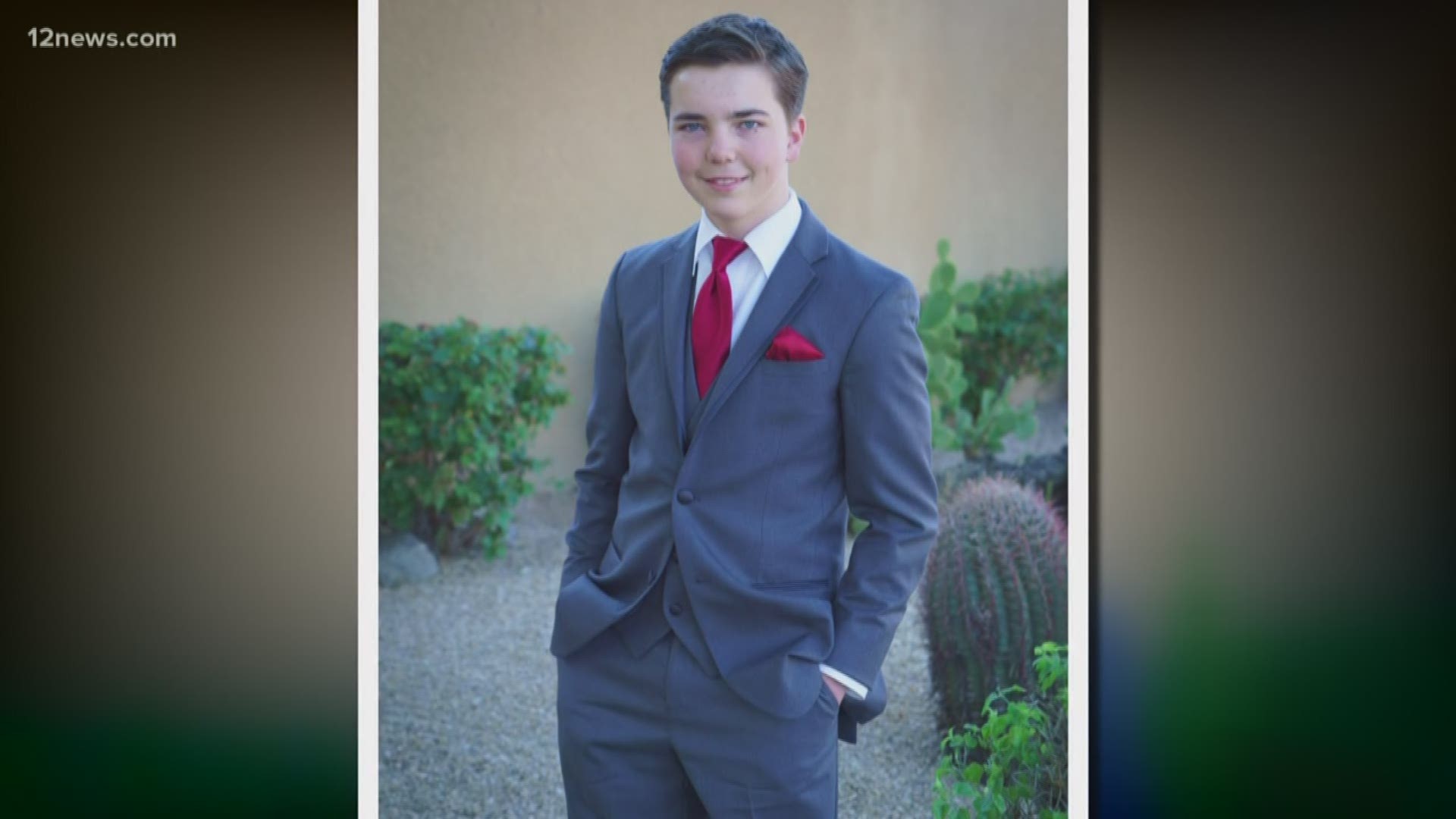PHOENIX — Editor's note: The above video aired before the bill was sent to Gov. Ducey's desk for signing on March 3, 2020.
Gov. Doug Ducey signed "Jake's Law" on Tuesday after the state legislature approved it.
The goal of the new legislation: to save lives like Jake's.
“Always empathetic, the guy who would come up and try to help you,” Denise Denslow said "When he was younger he would come up to me and go, 'Mommy, can I get you soup?'”
The bill aims at creating an insurance parity law for the state modeled after federal legislation. Simply put, it would require insurance companies to treat mental health like they would any other medical procedure.
The inspiration comes after what happened to Denslow's son, Jacob.
Denslow has picture after picture of her smiling boy, Jacob, but the smiles hid issues he was having within himself.
“He looked happy at school, but only those who really knew him were struggling,” Denslow said.
Denslow said her son had issues from a very young age, suffering from mental illness.
She realized her son needed help, getting him counseling, going so far to remove objects that could be used for suicide.
“We had taken the door off his room. We had taken away all lethal means,” Denslow said.
In the fall of 2015, Jacob would be hospitalized twice in a matter of two months. Documents provided by the family say that Jacob admitted to doctors he would have suicidal thoughts every day and that he had attempted suicide multiple times in the past.
After the first hospitalization, the Denslows said the insurance company would pay for five days of treatment.
After the second hospitalization, the Denslows said they and Jacob's doctors believed he needed longer-term care.
The insurance company would only pay for five days.
“They said, 'Well, unfortunately, this is all the insurance company is going to cover," Denslow said.
In a committee Thursday, the family compared Jacob's situation to someone who had suffered a heart attack. The family said an insurance company would not have sent Jacob home if his heart wasn't strong enough after a heart attack.
However, after being hospitalized for the second time, the insurance company would not pay for longer-term care.
But what about the options to pay without using insurance?
“It would cost $140,000,” Denslow said.
The six-figure price tag was one they could not afford.
Jacob returned home as his mother and stepfather worked on appealing the insurance company's decision – until January of 2016.
“You still wake up like, 'This isn’t real,'” Denslow said.
Jacob died by suicide at the age of 15.
“I know everyone says, 'Don’t feel guilty,' and I tell moms that, but we are supposed to protect our kids,” Denslow said.
Since then they have started the JEM foundation aimed at passing state parity laws.
“I want the insurance company to understand these aren’t numbers; these are people,” Denslow said.
While a federal law is supposed to ensure parity, a study by Milliman shows discrepancies.
For example, in Arizona, those with insurance were 10 times more likely to go out of network for mental health stays than for a surgical procedure.
The full report can be viewed here.
Major insurance companies such as Blue Cross Blue Shield and United say they are following the federal law and consistently review rates.
In a statement, United Healthcare said:
"We sympathize with the family’s loss of their son. We are committed to providing our members with access to the mental health support they need, when they need it, as part of our broader efforts to improve access to quality, affordable care. Our members’ care is directed by their physicians based on their clinical needs. Our policies comply with all state and federal regulations and ensure our members have access to the mental health and substance use treatments covered under their plans."
Blue Cross Blue Shield also released a statement, saying:
"The need for intervention and treatment to address mental health and substance use disorder conditions is an important issue for our state. This is why BCBSAZ is continuing to establish more resources, devote more team members to behavioral health, and launch programs like Mobilize AZ. This isn’t a problem we can solve on our own, which is why we are working with organizations across the state to help them with tools and resources to expand their reach in helping improve the quality of life for more Arizonans."
The family hopes the insurance parity law in Arizona can help zero in on differences between coverage and make sure what happened to Jacob doesn't happen again.
“If we can get people access to care they can live long productive fruitful lives," Denslow said.
RELATED:
MORE INFO: 12news.com/factis
Read more about Jake's Law here.

